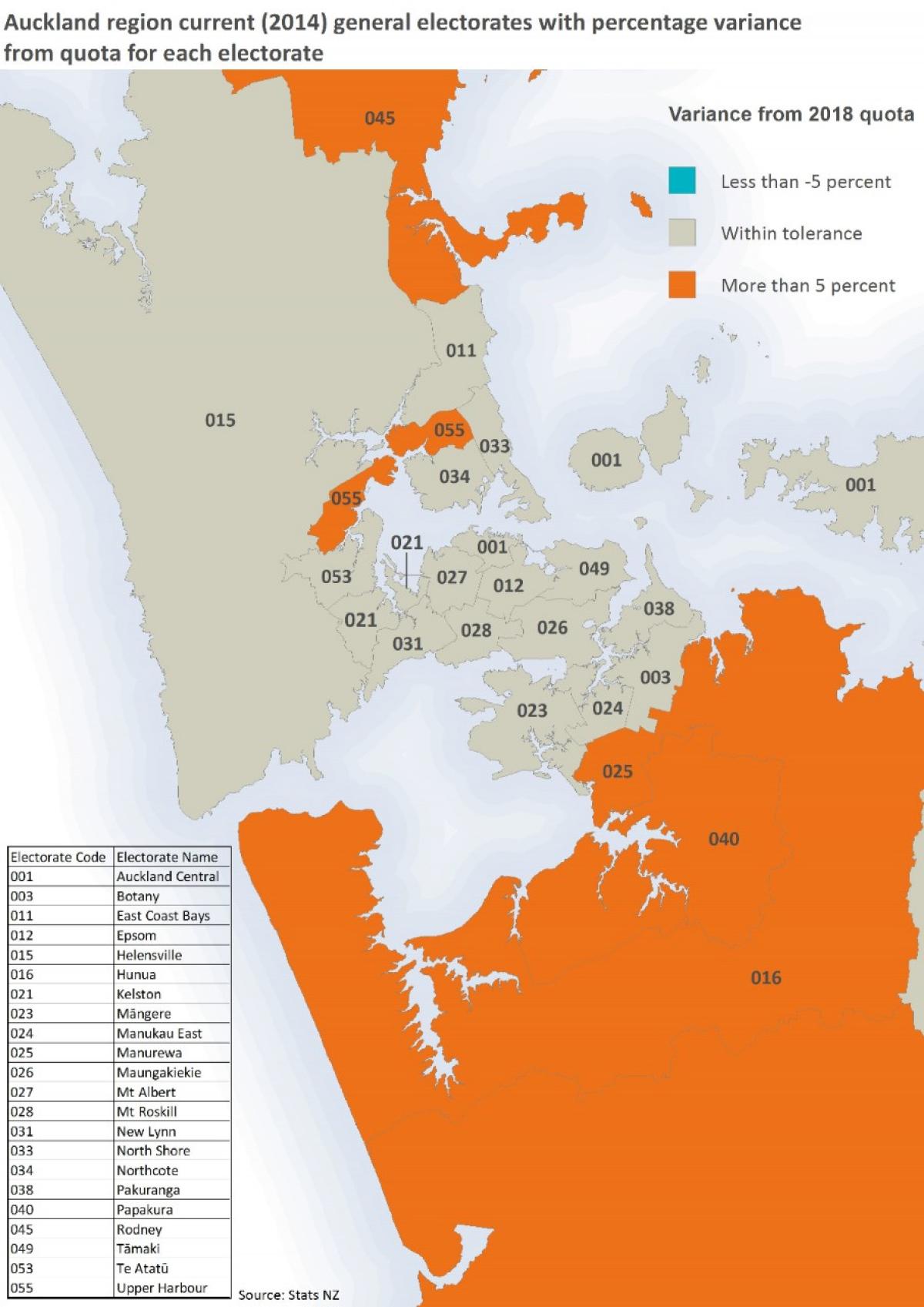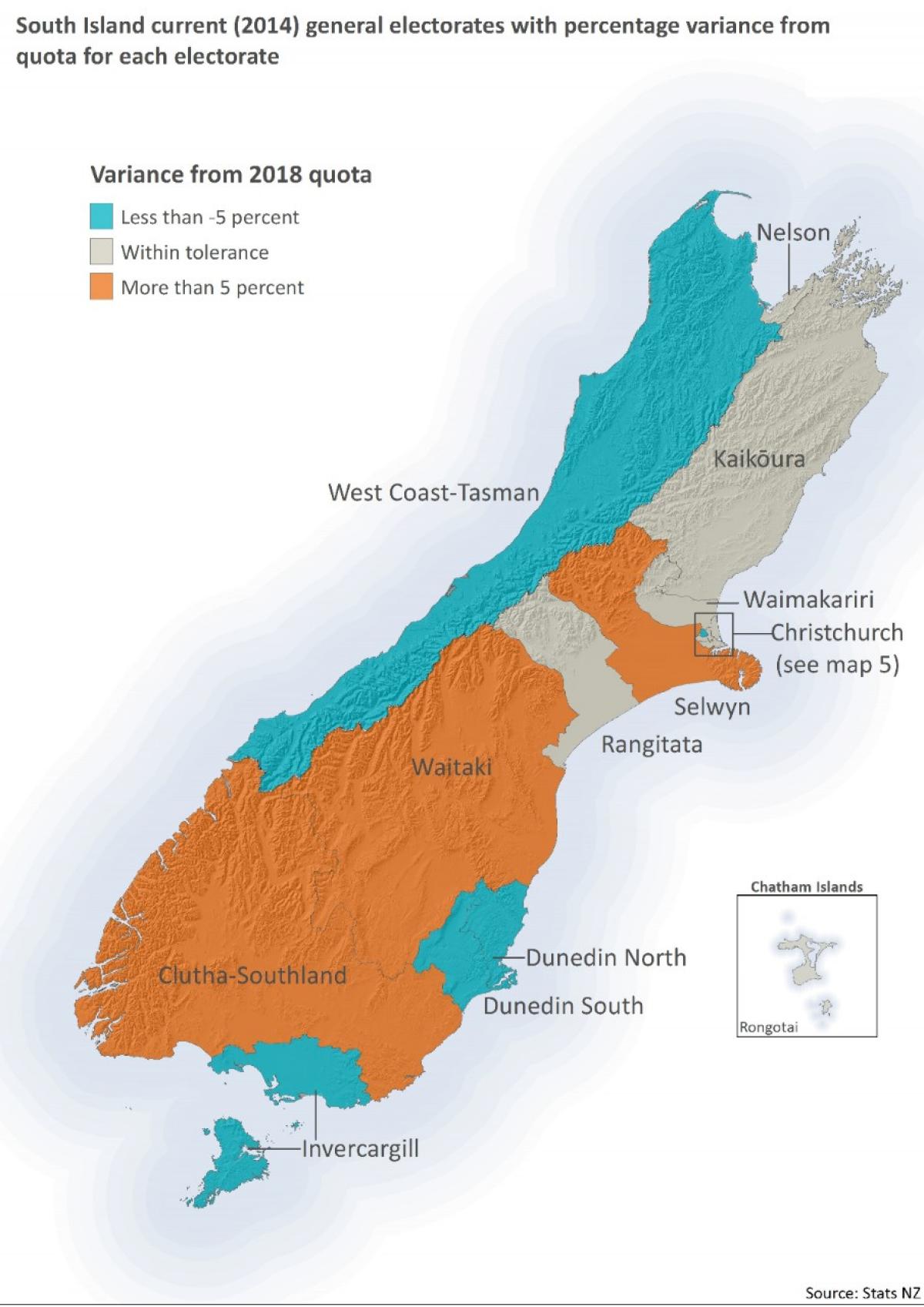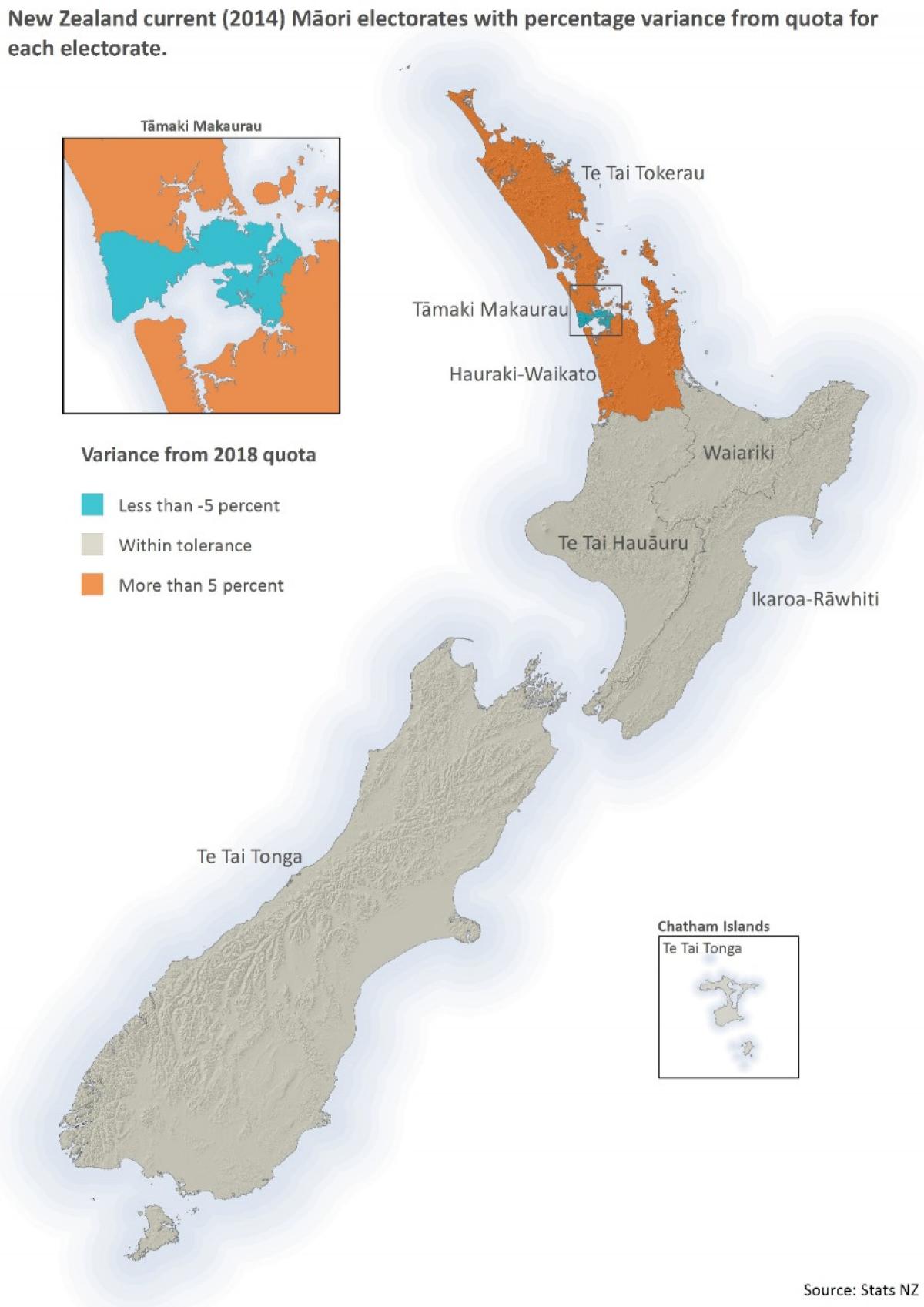Maps produced by Stats NZ show the electorates that are likely to be split in the 2020 general election as they now exceed or are below the population quota.
Stats NZ announced on Monday the number of electorates would increase from 71 to 72 at the next general election, with a new electorate to be created in the North Island.
It means that in a 120-seat Parliament - excluding any overhang seats - a total of 72 electorates will result in 48 list seats being allocated, one less than in the 2017 election.
- Only two-thirds of Māori filled out the census
- Government gives Stats NZ multi-million handout after Census shambles
- Census 2018: There will be a new electorate at the 2020 general election
Regularly adjusting the electorate boundaries makes sure each electorate has about the same number of people. This gives all New Zealanders equal representation in Parliament.
Each electorate must not exceed 5 percent or be below 5 percent of the set quota, which is 64,899 for the North Island and 65,458 for the South Island, and 67,582 for the seven Māori electorates.
The number of general electorates in the South Island, by law, is held constant at 16.
There are currently 11 North Island electorates that have electoral populations that vary by more than plus or minus 5 percent of the 2018 quota.
The general electoral population of Papakura exceeds the quota by the largest percentage of 14.8 percent. This is followed by Hunua, which exceeds quota by 14.2 percent.
There will be changes to roughly a third of electorates that are out of the population tolerance zone and need to be brought either up or down.
In 2014, two new electorates were announced: Upper Harbour and Kelston in west Auckland, and Waitakere was dissolved - so it was a net increase of one electorate.
A Stats NZ spokesperson said the new electorate boundaries could be announced in April next year.
The images below show which electorates are exceeding the population quota and which ones are falling below it.
They will likely have new boundaries drawn in time for the 2020 election.






Newshub.

